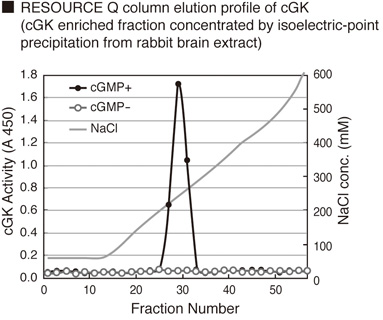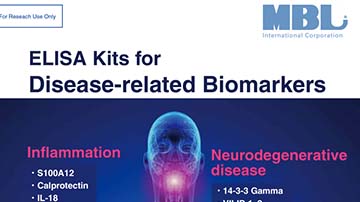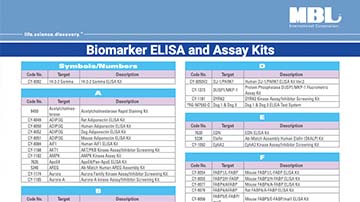CycLex® Cyclic GMP dependent protein kinase (cGK) Assay Kit
The CycLex Research Product CycLexCyclic GMP dependent protein kinase (cGK) Assay Kit is primarily designed to measure the activities of purified the cGK family of kinases for the rapid and sensitive evaluation of inhibitors or activators. It can be used for 96 assays.
| Target | cGKs |
|---|---|
| Product Type | Kinase Assay Kit |
| Application | ELISA |
| Research Area | Cell Biology, Drug Discovery, Signal Transduction |
| Description/Background | Nitric oxide (NO) and a broad spectrum of hormones, drugs, and toxins raise intracellular cGMP concentrations and thereby regulate a great variety of functions, including smooth muscle relaxation, neuronal excitability, and epithelial electrolyte transport. Pfeifer et al. (1996) noted that depending on the tissue, an increase in cGMP concentration leads to the activation of different receptors, such as cyclic nucleotide phosphodiesterases. The identification of the physiologic mediator of cGMP is complicated by the existence of 2 forms of cGMP-dependent protein kinase (cGK), types I and II, which are encoded by distinct genes. Smooth muscle, platelets, and cerebellum contain high concentrations of cGK-I, whereas cGK-II is highly concentrated in brain, lung, and intestinal mucosa. The function of cGK-II is not well understood, although there is evidence that it mediates intestinal secretion of water and electrolytes induced by the E. coli toxin STa and the intestinal peptide guanylin. Activation of cyclic GMP-dependent protein kinase (cGK) is an important event in the regulation of blood pressure and platelet function. Upstream signals include the generation of nitric oxide (NO) by NO synthases and the subsequent rise in cGMP levels mediated by NO-dependent guanyl cyclases (GCs). The identification of new cGK activators by high throughput screening (HTS) may lead to the development of a novel class of therapeutics for the treatment of cardiovascular diseases. |
| Storage Temperature | Upon receipt store all components at 4°C. Don’t expose reagents to excessive light. |
| Protocols | ELISA |
| Regulatory Statement | For Research Use Only. Not for use in diagnostic procedures. |




